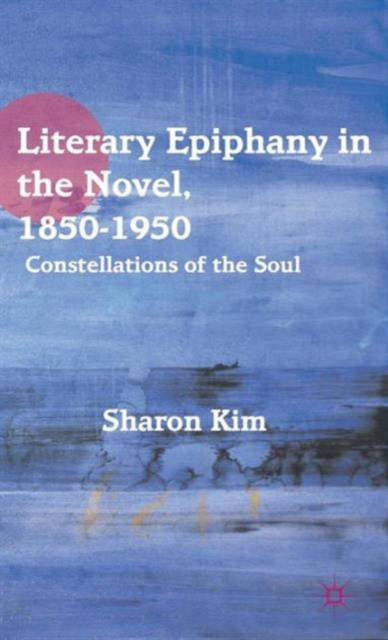
Je cadeautjes zeker op tijd in huis hebben voor de feestdagen? Kom langs in onze winkels en vind het perfecte geschenk!
- Afhalen na 1 uur in een winkel met voorraad
- Gratis thuislevering in België vanaf € 30
- Ruim aanbod met 7 miljoen producten
Je cadeautjes zeker op tijd in huis hebben voor de feestdagen? Kom langs in onze winkels en vind het perfecte geschenk!
- Afhalen na 1 uur in een winkel met voorraad
- Gratis thuislevering in België vanaf € 30
- Ruim aanbod met 7 miljoen producten
Zoeken
€ 83,95
+ 167 punten
Uitvoering
Omschrijving
This book studies literary epiphany as a modality of character in the British and American novel. Epiphany presents a significant alternative to traditional models of linking the eye, the mind, and subject formation, an alternative that consistently attracts the language of spirituality, even in anti-supernatural texts. This book analyzes how these epiphanies become "spiritual" and how both character and narrative shape themselves like constellations around such moments. This study begins with James Joyce, 'inventor' of literary epiphany, and Martin Heidegger, who used the ancient Greek concepts behind 'epiphaneia' to re-define the concept of Being. Kim then offers readings of novels by Susan Warner, George Eliot, Edith Wharton, Virginia Woolf, and William Faulkner, each addressing a different form of epiphany.
Specificaties
Betrokkenen
- Auteur(s):
- Uitgeverij:
Inhoud
- Aantal bladzijden:
- 201
- Taal:
- Engels
Eigenschappen
- Productcode (EAN):
- 9781137021847
- Verschijningsdatum:
- 14/09/2012
- Uitvoering:
- Hardcover
- Formaat:
- Ongenaaid / garenloos gebonden
- Afmetingen:
- 140 mm x 216 mm
- Gewicht:
- 362 g

Alleen bij Standaard Boekhandel
+ 167 punten op je klantenkaart van Standaard Boekhandel
Beoordelingen
We publiceren alleen reviews die voldoen aan de voorwaarden voor reviews. Bekijk onze voorwaarden voor reviews.









